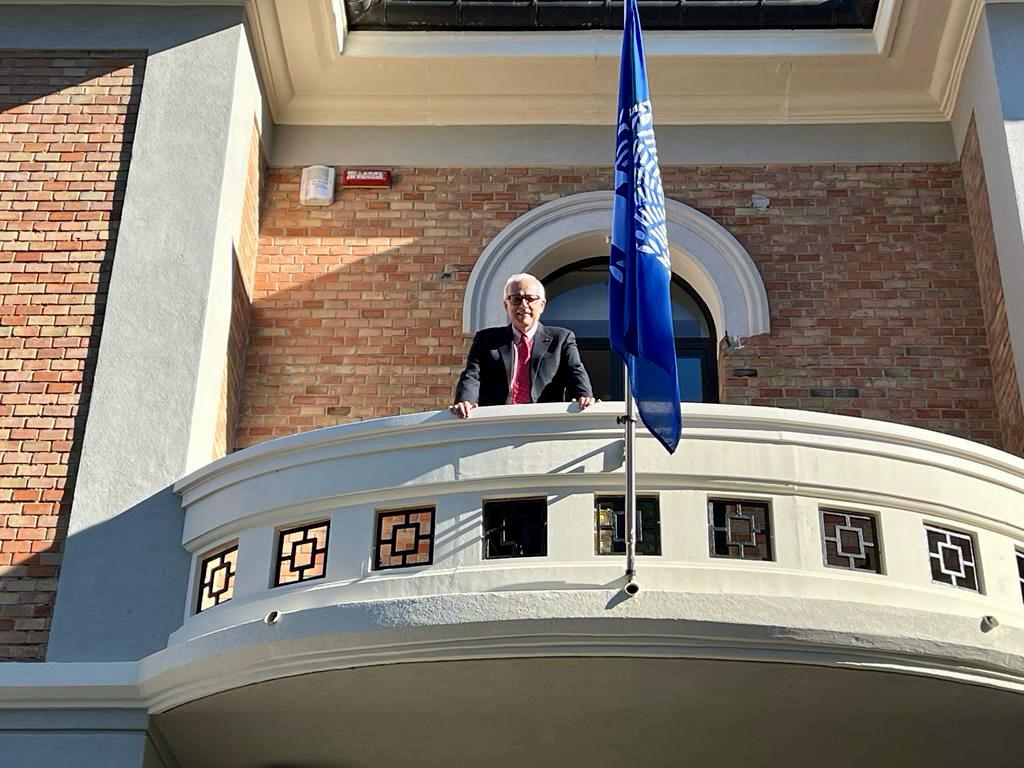The Sovereign Order of Malta’s Humanitarian Mission, Global Impact, and Work in Serbia
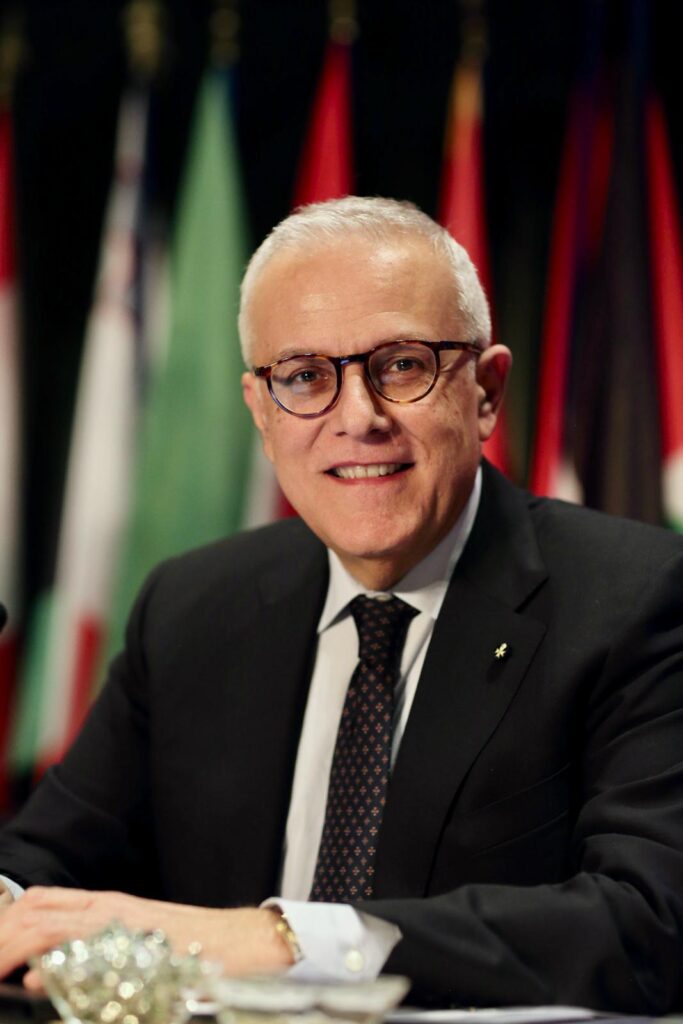
H.E. Francesco Maria Amoruso, Ambassador of the Sovereign Military Order of Malta, discusses the Order’s unique role as a sovereign humanitarian entity, its global relief efforts, and its partnerships with the UN and Red Cross. He also highlights the Order’s historic and modern ties with Serbia and its ongoing mission to support those in need.
Can you provide an overview of the Sovereign Military Order of Malta’s historical origins and purpose, its unique status as a sovereign entity without a defined territory, and how this shapes its role in global diplomacy, humanitarian work, and the balance between its religious and diplomatic missions?
The founding of the religious community of the Hospitallers of St. John in the Holy Land dates back to 1048. It was under the leadership of Blessed Fra’ Gerard, founder and first Master, that the religious community became a lay religious order. Thanks to the bull of 15 February 1113, Pope Paschal II recognised the Order of St. John, placing it under the protection of the Church and granting it the right to freely elect its superiors without interference from other lay or religious authorities.
The Sovereign Order of Malta is one of the oldest institutions of Western and Christian civilisation, a unique institution in the world. It is, at the same time, a lay religious order of the Catholic Church, a subject of international law and a humanitarian institution.
In spite of the loss of the territories of Rhodes (1310-1523) and Malta (1530-1798), its sovereignty and independence have not been interrupted.
The absence of territory and citizens has never affected the sovereignty of the Order of Malta, which, therefore, occupies a special place in international law.
The humanitarian activities of the Order of Malta around the world are largely facilitated by the existence of its diplomatic network, which strengthens the relationships with the governments of the countries in which it operates. Diplomatic relations offer direct access to national governments and international organisations. They provide a channel which helps the entities of the Order in developing medical and humanitarian projects in accordance with local needs.
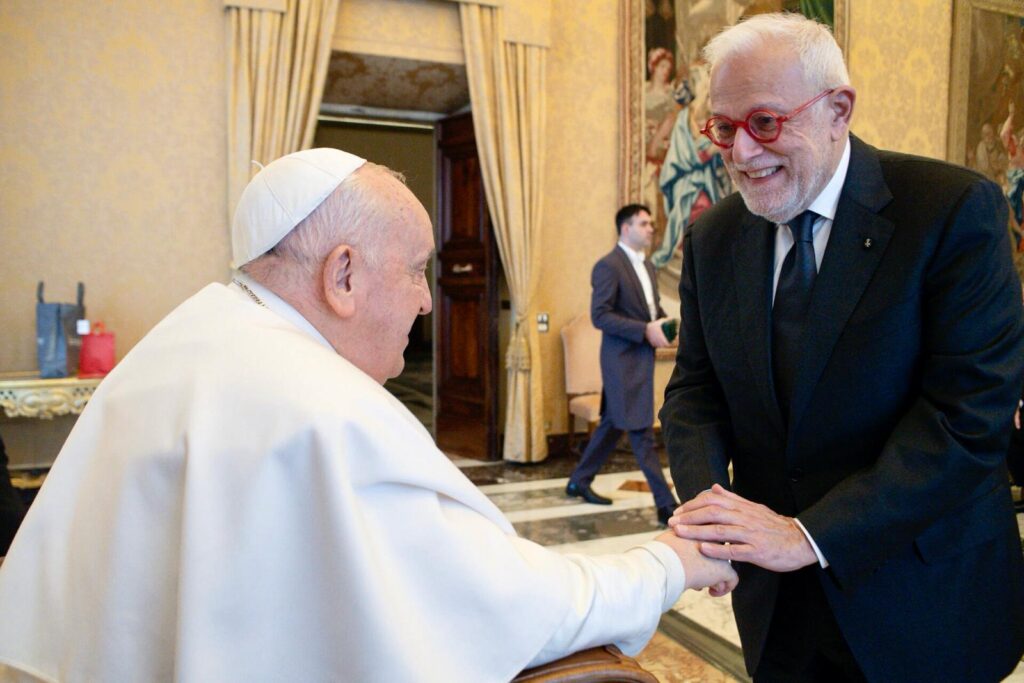 The Order’s sovereignty, together with its diplomatic network, plays a pivotal role in the Order’s ability to help people in need. It also creates an asset for the universal values of Christianity shared with other religions. The Order is neutral and impartial, which allows it to provide assistance in situations where other organisations have difficulty of access.
The Order’s sovereignty, together with its diplomatic network, plays a pivotal role in the Order’s ability to help people in need. It also creates an asset for the universal values of Christianity shared with other religions. The Order is neutral and impartial, which allows it to provide assistance in situations where other organisations have difficulty of access.
The Order of Malta’s sovereignty and diplomatic network are essential in providing humanitarian aid where others may face barriers
The diplomatic activity of the Sovereign Order of Malta is distinct from that of nation States. It has another dimension and two main lines: it acts to promote ethical and spiritual values, which have guided it for nearly a thousand years, through its charitable works, especially in the medical, social and humanitarian fields, and in emergency situations. It does not pursue any economic or political goal, does not position itself in international conflicts and does not depend on any other State or government.
What are the Sovereign Military Order of Malta’s current global priorities in areas such as health, social care, and emergency response, and how does it coordinate with international organisations like the UN, WHO, and Red Cross to maximise its impact?
Global priorities in health social care and emergency response are:
Assisting victims of war, helping migrants, fighting epidemics and neglected diseases, helping the excluded to integrate, protecting the elderly and the disabled, and intervening in natural disasters.
The Order manages hospitals, healthcare clinics, out-patient units, institutes for the elderly and disabled, palliative care centres and sociomedical and mental health projects for migrants and refugees. Malteser International, the Order of Malta’s special relief agency, gives emergency aid in theatres of war and during natural disasters. The Order is currently engaged in over 70 areas in Ukraine and in the bordering countries. In the Middle East, it assists victims of conflicts in Syria and Iraq and manages the sole hospital in Bethlehem with a neonatal intensive care department. The Order of Malta has been providing food aid to the population in Gaza City since May 2024, in close cooperation with the Latin Patriarchate in Jerusalem, the Catholic Parish of Gaza City and Caritas. This flow of aid will continue as long as it is needed. The Order of Malta’s Italian Relief Corps participates in first-aid operations for migrants in the Mediterranean Sea.
With its health projects, the Order is advocating for people in need to have universal access to medical care and for the sustainable development of the healthcare systems. The objective is to provide adequate, effective and affordable health care in the long-term.
Multilateral relations with the United Nations, the European Union and the principal international organisations allow the Sovereign Order of Malta to take its expertise from the field to the diplomatic table.
Through its ambassadors and diplomatic representatives, the Order’s views on issues at the core of its commitment – human rights, healthcare, food security – are represented on the international stage.
The Sovereign Order of Malta contributes with its expertise to global consultations and to the definition of possible fields of cooperation in healthcare, social assistance and emergency relief.
The Order of Malta has a permanent Observer status at the United Nations and maintains missions of permanent observer to the United Nations Offices in New York, Geneva, Rome, Vienna and a Permanent Observer Mission is accredited to UNESCO in Paris.
The Permanent Mission of the Sovereign Order of Malta to the United Nations Office in Geneva is in contact with The International Committee of the Red Cross (ICRC) and the International Federation of Red Cross and Red Crescent Societies (IFRC) whenever events require, and as an observer it is invited to participate every 4 years to the International Conference of the Red Cross and Red Crescent (IC), the world’s leading humanitarian forum.
Different Entities of the Order of Malta cooperate with Red Cross societies on the ground under certain circumstances.
H.E. the Grand Chancellor and H.E. the Grand Hospitaller met with the President of the Red Cross during the Grand Master’s official visit to UNOG in October 2024.
| ABOUT WHO
World Health Organisation: longstanding cooperation; Malteser International is a partner of the Global Health Cluster. We participate in the annual World Health Assembly, the sessions of the Executive Board, and other relevant meetings. |
Can you share insights into the historical and current relationship between the Sovereign Military Order of Malta and Serbia?
The first contacts between the Kingdom of Serbia and the Order of Malta were established in the 19th century, when the first donation to Serbia by the Order of Malta was recorded: a hospital train in the war between the Kingdom of Serbia and the Principality of Bulgaria. If we go further into history, there are many traces of the activities of the Knights of St. John during the Crusades in the territory of present-day Serbia. The Knights of St. John later became the Knights of Malta. Even today, there are many landmarks from those times, the most important of which is in Bač, Vojvodina, where the knights founded the first hospital in this part of Europe in 1234. On the way from the West to the Holy Land, many knightly orders had their commanderies in the territory of present-day Serbia, so it can be said that the thousand-year history of the Order has always been connected to these regions.
Since the restoration of diplomatic relations in 2001, the Republic of Serbia and the Sovereign Military Order of Malta have achieved a high level of cooperation in diplomacy and humanitarian affairs. There are countless projects with which we have helped the sick and the poor, which is the motto of the Order of Malta Tuitio fidei et obsequium pauperum (Defence of the faith and assistance to the poor). Our plans are to expand the activities through a group of volunteers whose task would be to help humanitarian efforts. We will soon achieve that.
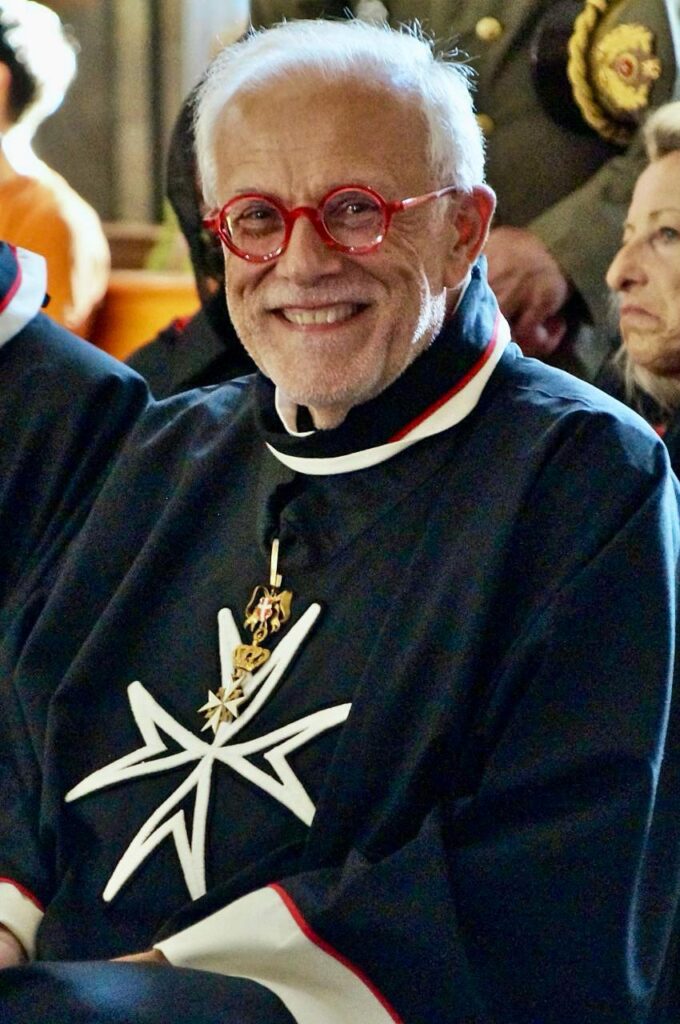 Could you elaborate on the Sovereign Military Order of Malta’s current initiatives in Serbia, particularly those addressing challenges such as migration, poverty, and public health? Additionally, how does the Order’s diplomatic mission contribute to strengthening ties with Serbia?
Could you elaborate on the Sovereign Military Order of Malta’s current initiatives in Serbia, particularly those addressing challenges such as migration, poverty, and public health? Additionally, how does the Order’s diplomatic mission contribute to strengthening ties with Serbia?
We are completing two projects at the Home for Girls with Developmental Disabilities in Izvor, near Paraćin, within the Monastery of St. Petka. In collaboration with the nuns and the Paraćin Municipality’s Center for Social Work, we have installed solar panels and roller blinds on all windows, as well as heat-reflective glass on the terraces to keep the building cooler in summer.
Our partnership with this home, where the state and the Orthodox Church have worked together for over 50 years, has a long history. Over the past decade, we have donated an ambulance, a car, industrial washing and drying machines, medical equipment and supplies, food, and other essential items.
This collaboration is part of our ongoing commitment in Serbia, and we are deeply grateful to the nuns, Bishop Ignatius, and the staff for their invaluable support.
Since the 11th century, we have dedicated ourselves to one mission that never stops: helping the sick and the poor
What challenges does the Sovereign Military Order of Malta face in delivering its mission in Serbia, and how does it adapt to evolving global issues such as climate change, emerging health crises, and their local impacts on communities?
We have always received gratitude and support for our work from the institutions of the Republic of Serbia. What we would like is for the state of Serbia to permanently introduce relief for the import of humanitarian aid and, if possible, exempt such imports from VAT. This would be of great help to us and everyone else when we are looking for donors in the world because it is difficult to explain to them that when they give aid, they also have to pay customs duties and taxes. When it comes to climate change and health crises on the planet, the Order of Malta has long been one of the institutions that is constantly active around the world and is constantly engaged in these important global issues. We have bilateral diplomatic relations with 113 countries, but we also have strong Associations with the Knights of Malta in many more countries. The Order of Malta is the oldest living knighthood in the world because, since the 11th century, it has dedicated itself to a work that never stops: helping the sick and the poor.
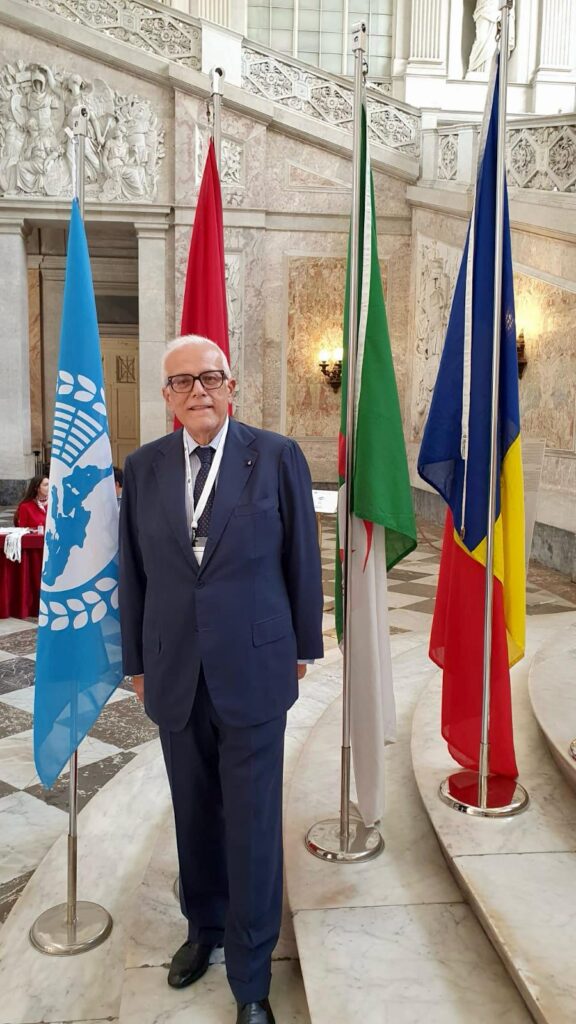 As an ambassador, what do you find most rewarding about representing the Sovereign Military Order of Malta in Serbia, and is there a specific project or success story from the Order’s work in the country that you are particularly proud of?
As an ambassador, what do you find most rewarding about representing the Sovereign Military Order of Malta in Serbia, and is there a specific project or success story from the Order’s work in the country that you are particularly proud of?
Generally speaking, since the establishment of diplomatic relations almost a quarter of a century ago, the Sovereign Military Order of Malta in Serbia, which is a predominantly Orthodox country, has managed to make the majority of people in Serbia familiar with the Order’s activities, to establish a Friendship Group in the Serbian Parliament, to reach out to those in need and to help wholeheartedly whenever possible. We have received great help in this work from the Belgrade Archdiocese, the former Archbishop Hocevar and today from his successor, Cardinal Nemet. I would not single out individual projects, but if I really have to, it is the purchase of an important instrument for surgery on paralysis in children, which we donated to the Clinical Center of Serbia with the help of our partners from the USA.
Our cooperation with Serbia continues to grow, with projects that support the most vulnerable and strengthen humanitarian efforts
